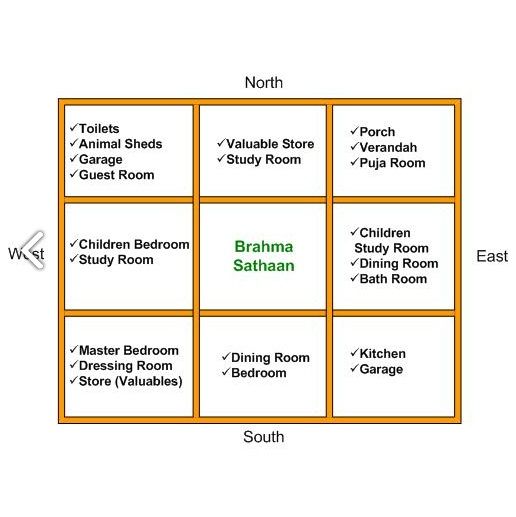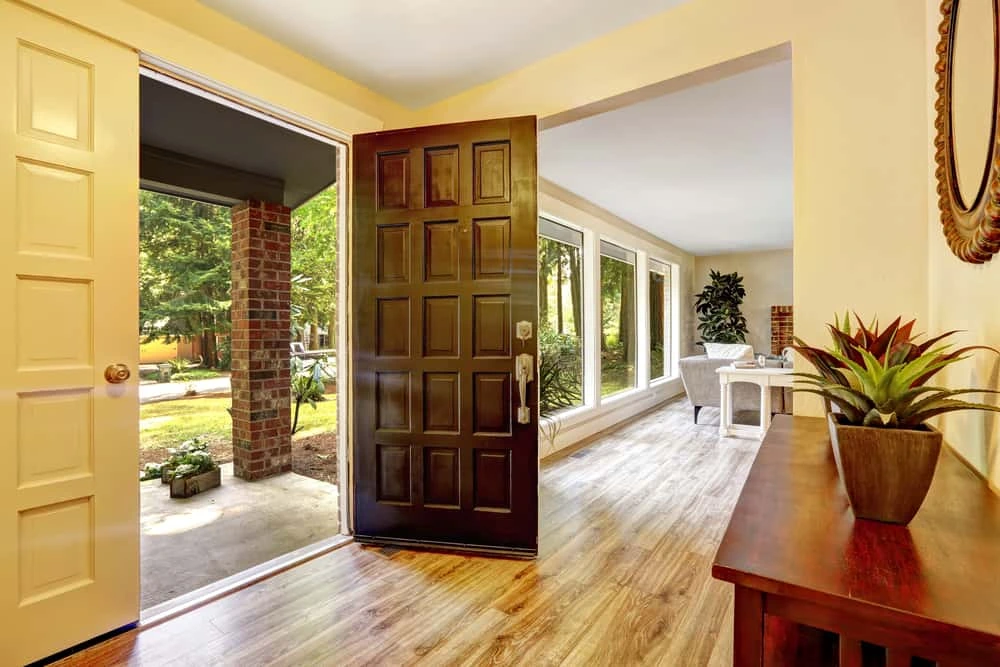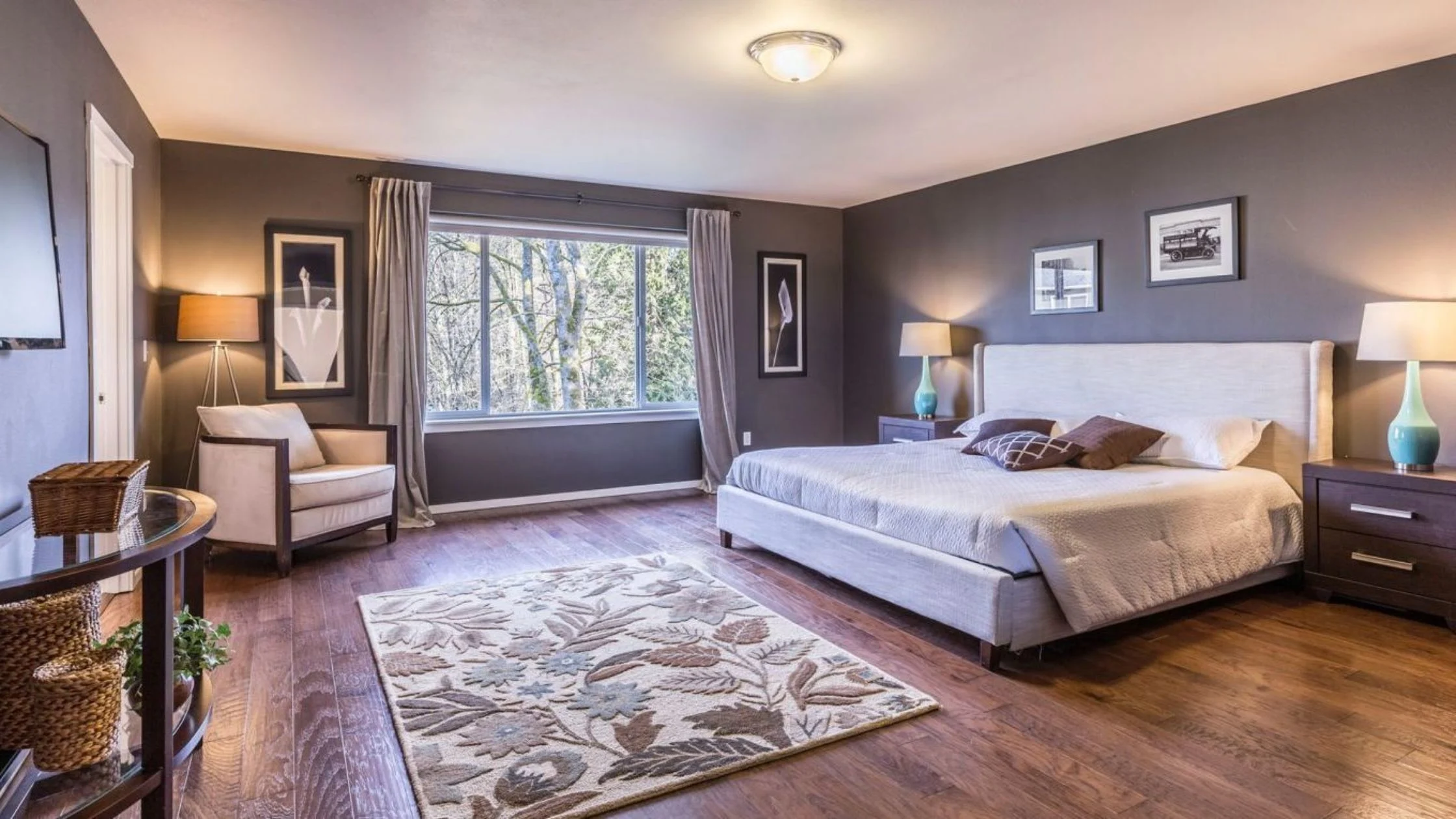Table of Content
▲- What Does a West Facing House Signify According to Vastu?
- Benefits of a West Facing House Vastu Plan
- Disadvantages of a West Facing House
- Vastu Plan for West Facing Homes
- Additional Guidelines for West Facing Homes
- Remedies for Vastu Defects
- Safety Measures for a West Facing House
- Summing Up: Vastu Plan for West-Facing Houses
When choosing a home, the direction it faces is more than just a detail. It can shape the energy, harmony, and prosperity of the household. A west facing house vastu plan, according to Vastu Shastra, holds unique benefits that make it particularly appealing for certain professions and lifestyles. However, it’s essential to design it thoughtfully to maximize its advantages and mitigate potential downsides.
Here’s everything you need to know about living in a west facing house vastu plan and how to make it a magnet for positivity and prosperity.
What Does a West Facing House Signify According to Vastu?
In Vastu Shastra, the west-facing house holds unique significance as it is associated with stability, social connections, and prosperity. This orientation is governed by Lord Varun, the deity of water and the sky, symbolizing abundance, movement, and life force.
Also Read: Hyderabad Real Estate Recovers Amid HYDRAA's Lingering Impact
Here’s what a west facing house vastu plan signifies:
1. Wealth and Prosperity
- A west facing house is believed to attract wealth and financial stability. It is especially favorable for business owners, entrepreneurs, and individuals in public-facing professions.
2. Social Popularity and Relationships
- Living in a west facing house enhances social bonds and helps establish better connections. It is often linked with fame and recognition, making it an excellent choice for politicians, public figures, and educators.
3. Energy and Enthusiasm
- This direction receives maximum energy during the evening hours when the setting sun bathes the house in warm light. This creates a vibrant and uplifting atmosphere, particularly beneficial for children and youngsters.
4. Positive Vibrations
- The west facing orientation is considered ideal for maintaining harmony within the household. It brings balance to personal and professional life, helping individuals achieve their goals.
5. Stability and Strength
- The west direction represents stability, making it an auspicious choice for those seeking a long-term residence or a secure foundation for family life.
While a west-facing house offers several benefits, proper planning and adherence to Vastu principles are essential to amplify its advantages.

Benefits of a West Facing House Vastu Plan
1. Enhances Social Relationships
West facing house vastu plans are renowned for fostering strong social connections. This makes them ideal for people in professions that thrive on relationships—business owners, politicians, teachers, and celebrities. Such homes exude an energy that enhances rapport and builds trust, making occupants more approachable and respected.
2. Boosts Energy for Children and Young Adults
These homes are known for their vibrant and energizing vibes. For children and young adults, this energy creates a lively atmosphere that promotes creativity, enthusiasm, and ambition.
3. Attracts Wealth and Prosperity
The west is associated with Lord Varun, the controller of the universe and the sky element. Living in a west facing house vastu plan can invite financial growth, stability, and abundance. People in such homes often experience professional success and social recognition.
4. Brings Warmth and Light
West facing house vastu plans capture the soft glow of the evening sun. This prolonged exposure to sunlight creates a warm, comforting ambiance and fills the home with positivity. It also makes these homes more energy-efficient in cooler months.
5. Keeps Interiors Cool Post-Sunset
Once the sun sets, west facing homes cool down quickly, maintaining a pleasant indoor environment throughout the night. This makes them especially comfortable in moderate climates.
Disadvantages of a West Facing House
While a west facing house vastu plan has many benefits, it also comes with some challenges that need attention.
1. Excessive Heat in Hot Regions
In areas with high temperatures, the evening sun can make west-facing homes overly warm. This might lead to higher cooling costs during summer.
2. Difficulty in Entrance Placement
The ideal main entrance for a west facing house vastu plan can be challenging to achieve due to the layout of the northwest and southwest zones. Without careful planning, the entrance may not comply with Vastu, potentially affecting the energy flow in the home.
3. Plot Alignment Issues
Vastu recommends aligning residential plots in an east-west or north-south direction. For some west-facing plots, ensuring this alignment might require adjustments, which could limit design flexibility.
Vastu Plan for West Facing Homes
To ensure the best flow of energy, it’s important to align rooms and key elements according to Vastu principles:
1. Pooja Room
- Ideal Placement: Northeast, east, or west directions.
- Reason: These directions are considered sacred and enhance spiritual vibrations.
- Tip: Ensure that idols or pictures of deities face east or west so that you face the divine while praying.
2. Living Room
- Ideal Placement: East, north, northeast, or northwest parts of the house.
- Reason: These directions invite natural light and energy, creating a welcoming and positive atmosphere.
- Tip: Place seating arrangements so guests face the east or north direction for better interaction.
3. Master Bedroom
- Ideal Placement: Southwest direction.
- Reason: This direction represents stability and is best suited for the head of the family. It ensures peace and strong decision-making capabilities.
- Tip: Place the bed with the headboard towards the south or west for restful sleep.
4. Children’s Room
- Ideal Placement: South, west, or northwest directions.
- Reason: These directions promote growth, creativity, and concentration, making them ideal for children and teenagers.
- Tip: Arrange study desks to face east or north for better focus and productivity.
5. Dining Room
- Ideal Placement: West direction.
- Reason: Dining rooms in the west facilitate warmth and bonding during meals.
- Tip: Place the dining table so family members face north or east while eating.
Also Read: Essential Guidelines for a North-East Facing House Vastu Plan to Attract Positive Energy
6. Study Room
- Ideal Placement: West direction.
- Reason: The west is associated with creativity and focus, making it an ideal spot for learning or work.
- Tip: Use soothing colors like light green or cream to enhance the environment's calming effect.
7. Guest Room
- Ideal Placement: Northwest direction.
- Reason: This direction symbolizes movement and is perfect for temporary guests.
- Tip: Keep the decor light and airy to create a welcoming vibe.
8. Kitchen
- Ideal Placement: Southeast direction.
- Reason: The southeast is ruled by Agni (the fire element), making it the ideal spot for cooking and managing energy efficiently.
- Tip: Ensure the cook faces east while preparing meals for the best results.
9. Staircase
- Ideal Placement: South, southwest, or west directions.
- Reason: These placements help in balancing energy and provide structural stability.
- Tip: Avoid placing staircases in the center of the house, as it may disrupt the energy flow.
10. Windows
- Ideal Placement: North and east directions.
- Reason: Windows in these directions allow ample natural light and fresh air, energizing the living space.
- Tip: Use light curtains to maintain privacy while allowing sunlight to filter in.
11. Overhead Water Tank and Toilets
- Ideal Placement: West direction.
- Reason: This direction can bear the load of a water tank and is less disruptive to the home's energy. Toilets in the west ensure minimal impact on positive energy flow.
- Tip: Avoid placing the toilet near the pooja room or kitchen to maintain purity and hygiene.
Additional Guidelines for West Facing Homes
1. Entrance Placement: The main entrance is crucial in a west-facing house. Place it in the 3rd, 4th, 5th, or 6th padas (segment) of the west wall for optimal energy flow.
.jpg)
2. Avoid Clutter: Keep the entrance and pathways clutter-free to invite positive energy.
3. Landscaping: Planting trees or shrubs on the west side can help block harsh sunlight and add beauty to the property
These placements help balance the natural energy flow and create a harmonious living environment.
Remedies for Vastu Defects
If your west facing house plan has any Vastu defects, simple remedies can help balance the energy:
- Entrance Placement: Shift the entrance to the 3rd, 4th, 5th, or 6th segment (or pada) of the west side for better energy alignment.
- Heat Management: Use heat-reflective materials, tall trees, or sunshades to minimize the impact of the evening sun.
- Mirrors: Place mirrors strategically to redirect energy flow and create a sense of balance in rooms with flaws.
- Colors: Use earthy tones like brown, beige, or pastel shades for interiors to neutralize excessive heat and promote calmness.
Safety Measures for a West Facing House
- Avoid placing a water body, like a fountain or swimming pool, in the southwest direction, as it can disrupt energy.
- Keep heavy furniture in the southwest corner of the house to stabilize the energy.
- Always ensure the main entrance is well-lit and clutter-free to invite positive energy into the home.
Summing Up: Vastu Plan for West-Facing Houses
A west facing house vastu plan can be a delightful place to live, offering warmth, social growth, and financial stability. By following Vastu principles and incorporating simple remedies for potential defects, you can transform your home into a space brimming with positive energy and prosperity.
Every direction has its strengths, and with the right design and planning, a west-facing house can become a haven of harmony and happiness. Trust the process, embrace the changes, and watch your life align with the abundant energies of the universe.
Also Read: Narayana Murthy's ₹50 Crore Luxury Home in Bengaluru's Kingfisher Towers







_1770286619.webp)

_1771582392.webp)
_1771577585.webp)
Ans 1. A west-facing house Vastu plan is a layout that aligns the house's design with Vastu principles, ensuring positive energy, prosperity, and harmony in the living space.
Ans 2. Yes, a west-facing house is considered beneficial for prosperity, social relationships, and wealth, especially for those in public-facing professions.
Ans 3. West-facing houses attract wealth, enhance social connections, boost energy for children, and create a harmonious living environment.
Ans 4. The direction of a house impacts the energy flow, affecting health, wealth, and overall well-being. Each direction has its own significance and energy associated with it.
Ans 5. According to Vastu, the master bedroom in a west-facing house should ideally be in the southwest direction for stability and peace.
Ans 6. The living room should be in the east, north, northeast, or northwest directions to promote positivity and ensure good energy flow.
Ans 7. Yes, west-facing houses are believed to bring financial prosperity and growth, especially when aligned with Vastu principles and suitable for business professionals.
Ans 8. Challenges include excessive heat due to the evening sun and difficulties in placing the main entrance to comply with Vastu principles.
Ans 9. The pooja room should be in the northeast, children’s room in the south or west, and the kitchen in the southeast, according to Vastu guidelines.
Ans 10. Remedies include adjusting the entrance, using heat-reflective materials, adding plants to block harsh sunlight, and ensuring the correct placement of furniture and rooms.